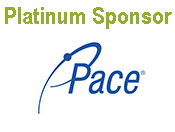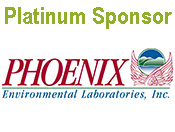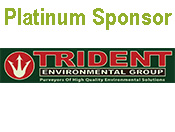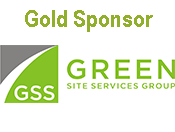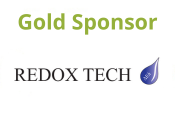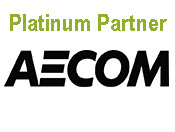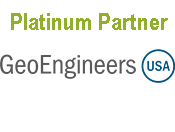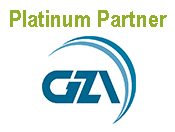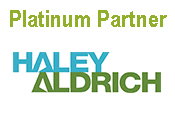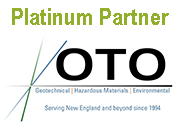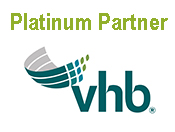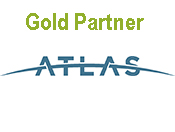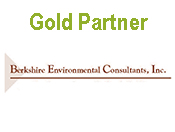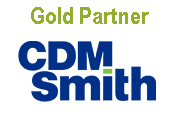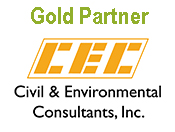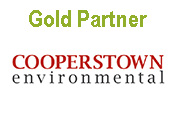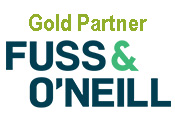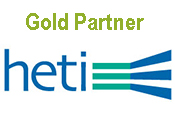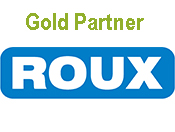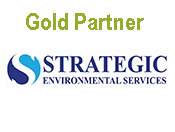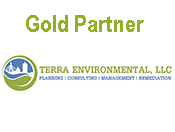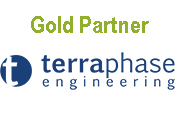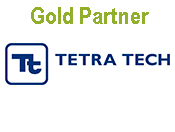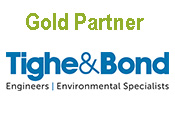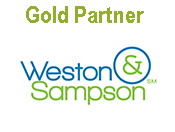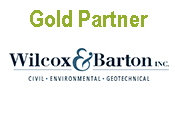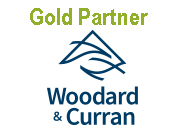If you can't have an LSPA member meeting, at least enjoy a Doubletree Hotel chocolate chip cookie
The LSP Association Scholarship Fund is accepting applications for educational scholarships for the 2020-2021 academic year. Deadline for submission has been extended to Friday, May 29, 2020.
| The LSPA received the following email yesterday afternoon from MassDEP BWSC. Among other things, it highlights a fact sheet with guidance outlining expectations related to MCP requirements and site work during the COVID-19 State of Emergency, including discussion of meeting response action deadlines for routine submittals. MassDEP recommends that should work be delayed by postponed field work, reduced staffing, or other interruptions, parties should notify MassDEP of the compliance delay in writing, include the deadline(s) that will be missed, and any measures, if applicable, taken to secure the disposal site during the period of work stoppage. The written notice of delay should be submitted to MassDEP through eDEP using transmittal form BWSC121: Notification of Delay. MassDEP BWSC also notes that it intends to exercise enforcement discretion for failure to meet deadlines for routine submittals during this State of Emergency. |
| ----------------------------------------------------------------------------------------------------------------------------------------- MassDEP has published a Fact Sheet on the continuity of waste site cleanup activities during the COVID-19 State of Emergency.
I expect we will discuss the new Fact Sheet and other matters during this week's BWSC Office Hours on Thursday morning. (DETAILS: https://www.mass.gov/service-details/bwsc-office-hours-video-calls)
As always, questions can be directed to [email protected] prior to the Thursday call.
I hope you are all safe & well.
|
|
On Friday, April 3, 2020 the LSPA submitted comments to the MA Department of Revenue on Working Draft Regulation 830 CMR 63.38Q.1, the Massachusetts Brownfields Tax Credit. Read our cover letter and the accompanying spreadsheet which presents our comments in more detail. Many thanks to the LSPA's Regulations Committee for compiling comments and to the many LSPA members who shared their feedback on the Working Draft regulation.
|
MassDEP BWSC Announces Office Hours
The LSPA received the following email this morning regarding the MassDEP BWSC New Office Hours.
Hope to see you there - virtually.
|
Waste Site Cleanup Advisory Committee members and Other Interested Stakeholders,
During yesterday's BWSC Advisory Committee meeting, it was suggested that the Bureau hold regular meetings over the next few weeks to address issues that may arise while we work through the new COVID-9 paradigm.
We have set aside time on Thursday mornings, 9:00 - 10:00, during which Liz Callahan and I will be available via Zoom.com.
At the very least we will take your questions, issues and concerns and try to find answer... or provide an opportunity to vent. Feel free to check in during that time, and we'll see how this format works for you (and for us).
It may be productive to send questions in to the [email protected] mailbox so that we can get a head start on the response.
Details for the call are below. You might want to add it to your calendar as a recurring event.
P.S. The handout and link to video from yesterday's meeting is (will be) available through the BWSC Advisory Committee web page.
|
|
Topic: MassDEP Waste Site Cleanup Advisory Office Hours
Date: Every Thursday, Starting April 2, 2020
Time: 09:00 - 10:00 AM Eastern Time (US and Canada)
Join Zoom Meeting
Meeting ID: 523 450 5769
One tap mobile
+19294362866,,5234505769# US (New York)
+13126266799,,5234505769# US (Chicago)
Dial by your location
+1 929 436 2866 US (New York)
+1 312 626 6799 US (Chicago)
+1 669 900 6833 US (San Jose)
+1 253 215 8782 US
+1 301 715 8592 US
+1 346 248 7799 US (Houston)
Meeting ID: 523 450 5769
Find your local number: https://zoom.us/u/axNF9imf4
|
COVID-19 Information
- Wash hands often with soap and warm water for at least 20 seconds.
- Avoid touching your eyes and face.
- Clean things that are frequently touched (like doorknobs and countertops) with household cleaning spray or wipes.
- Cover coughs and sneezes with a tissue or the inside of your elbow.
- Stay home when feeling sick.
- Stay informed.
- Get a flu shot.
The LSPA presented the following compliance tip at the November 2019 Membership Meeting at the DoubleTree Hotel in Westborough, MA on November 21, 2019.
COMPLIANCE TIP OF THE MONTH
Read More
Last night, LSPA’s Emerging Professionals Committee hosted Introduction to Drilling Techniques with Technical Drilling Services (TDS). At the sold-out event at their headquarters in Sterling, TDS demonstrated various drilling and monitoring well installation methods. Environmental consultants along with students from Bridgewater State University (BSU) learned about basic drilling/sampling techniques (including continuous and discrete soil cores) and groundwater monitoring well installations on a 15-foot monitoring well.
Here are a few photos from the event (photo credit to Michael Penzo).
Read More
In anticipation of the LSPA’s November 21, 2019 member meeting on MassDEP’s Natural Resource Damages (NRD) Program, the LSPA highlights one such project: the completion of the Mystic Riverfront Restoration project on the shores of the Mystic River in Arlington, MA at a location directly impacted by a 2013 spill of nearly 10,000 gallons of diesel fuel.
To compensate for the harm to the Mystic River from the spill, MassDEP settled a claim for Natural Resource Damages. These funds support work that began in 2017 and involved MassDEP, DCR, the Town of Arlington's Conservation Commission and DPW.
Read More
LSPA 26th Annual Dinner Wrap-Up
The LSP Association’s Board of Directors hosted over 300 attendees at this year’s Annual Dinner at Mechanics Hall in Worcester. It was a wonderful night and great to see so many LSPA members, clients, and friends. Click here to see the photograph album from the evening.
In addition to a performance by the Harvard-Radcliffe Veritones, the LSPA presented its Contribution to the Practice Awards. The following recipients were honored for their outstanding efforts:
Read More
2019-2020 LSPA Membership Meeting Dates
Meeting Date & Location Topic & Speaker Wednesday, September 18, 2019
Boston Marriott Newton, NewtonThursday, September 26, 2019
Hilton Garden Inn, SpringfieldEnvironmental Law: Part 1
Jeanine Grachuk, Beveridge & Diamond1.0 non-DEP Regulatory CreditCourse #1626AThursday, October 17, 2019
Mechanics Hall, WorcesterAnnual Dinner October 2019
Hilton Garden Inn, Springfield
Michelle O'Brien, Pierce Atwood LLP1.0 non-DEP Regulatory CreditCourse #1626BThursday, November 21, 2019
Doubletree Hotel, WestboroughTopic for Credit November 2019
Hilton Garden Inn, SpringfieldEnvironmental Law: Part 3 December 2019
Downtown Boston AreaCo-Sponsor the EBC Winter Garden Party Thursday, January 16, 2020
Doubletree Hotel, AndoverTopic for Credit Michael Marley, XDD EnvironmentalWednesday, February 12, 2020
Doubletree Hotel, WestboroughTheory and Applications of ISCO Injectate Selection and
In Situ Remediation Using Activated Carbon Based InjectatesCourse #1677Thursday, March 19, 2020
Holiday Inn, MansfieldTopic for Credit Tuesday, April 14, 2020
Crowne Plaza, WoburnTopic for Credit Tuesday, May 19, 2020
Doubletree Hotel, WestboroughTopic for Credit Thursday, June 18, 2020
Holiday Inn, TauntonTopic for Credit and LSPA Scholarship Presentation
The LSP Association (LSPA) is sponsoring legislation to address this problem. Senate bill 594 would require insurance companies to automatically provide this coverage. Read more here and here to learn how the LSPA's legislation will close a loophole.
On Friday, July 19, 2019, at the end of MassDEP's public comment period, the LSPA submitted our comments on the 2019 Proposed MCP Amendments. Our cover letter summarized three key topics of concern: PFAS, Risk Characterization, and Transition Provisions. A separate document included 15 pages of comments.
For the past 16 years, the LSPA Scholarship Fund has been awarding educational scholarships to individuals pursuing degrees in the fields of science, environmental engineering, or other majors that are consistent with the goal of becoming a Licensed Site Professional. At LSPA’s June 11th Membership Meeting in Taunton, MA, the LSPA Scholarship Fund awarded three individual scholarships.
Veronica Gonsalez received the $5,000 Jeff Hardin Memorial Award, which is presented to an LSPA member or member of their immediate family, who exemplifies the goal of environmental excellence. For those who remember Jeff, you know he strove for environmental excellence. Veronica is well-deserving of this scholarship.
Read More
LSPA's June 2019 Compliance Tip
The LSPA presented the following compliance tip at the June Membership Meeting at the Hilton Hotel in Woburn, MA on June 13, 2019.
COMPLIANCE TIP OF THE MONTH

